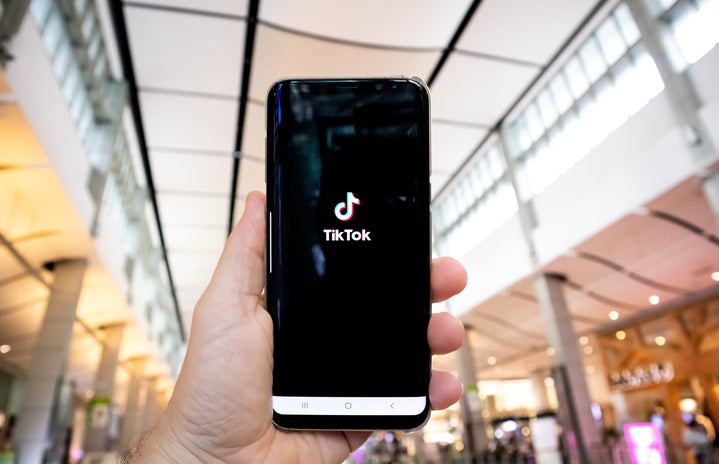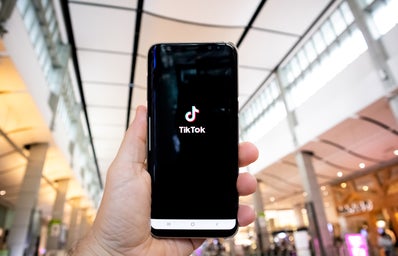Searching up Google with TikTok concept. Image from Analyticsindiamag.com
TikTok’s popularity has skyrocketed these past couple of years, and in the first quarter of 2022, the app was the most downloaded worldwide in all categories.
TikTok is also becoming the go-to social media platform; 40% of Gen Z users prefer TikTok and/or Instagram for search over Google, according to a July article by TechCrunch.
As percentages continue to grow along with the changes in technology each year, is this new competitor becoming a threat to the top current search engine?
Gen Z learned to become accustomed to the internet and digital space.
Searches from highest-rated skincare and clothing trends to the best restaurants or book recommendations are still very much effective when using Google.
What is different with this generation is that priority shifts in people wanting more engaging, short-form, and authentic content. Recommendations from social media like Instagram, Twitter, and YouTube bring more influence to the young generation than we realize.
TikTok brings a more visual outcome in vertical videos rather than reading an article on the web. The attention-grabbing elements from filters, sounds, and actions a creator creates keep viewers focused, and it is able to give the information needed straight away.
TikTok is also becoming a platform for immediate news. The day after the Queen’s death, most of my and my friend’s #fyp (for you pages) were filled with reports, opinions, and memories throughout her lifetime.
I remember using TikTok to keep up with Gabby Petito and Johnny Depp’s court case as well. The platform does it all and keeps users increasingly engaged and informed–even if a lot of it is opinionated.
It was not until I saw a TikTok of a creator explaining a new update on implementing a search engine feature that got me thinking about all of this a few weeks ago. I took a step back and realized how much my attention slowly shifted to TikTok specifically when wanting to know about a book, restaurant, or a life hack.
Last week, I was brainstorming who to be for Halloween this year–early, I know–, and my first instinct was to check out TikTok. I searched for “Halloween costumes” and found lots of new and old ideas.
I wanted to know what was on trend, and the 15-second videos did the trick. Some videos also showed complete outfit ideas that got my brain thinking.
Ultimately, I decided on what I am going to wear through YouTube and Pinterest, but the overall process was a lot smoother than if I were to solely use Google.
Another example was when I helped plan a trip with my roommates to San Francisco last month.
Our trip was entirely based on TikTok; a video from Notion about a pop-up in San Francisco was the first to spark the urge to go, and my roommate had a short vlog saved from a creator on other popular places nearby along with a fun painting picnic idea.
From my roommate’s vlog, we visited a hidden sandwich shop that ended up tasting spot-on. Our entire trip ended up being a huge success.
Both of these situations started with TikTok, but still needed to use other platforms like YouTube, Yelp, or even back to Google to find more accurate information or details.
TikTok was a great starting point for making quick decisions.
So, is TikTok the new Google? Not now, but there’s potential.
TikTok is still very much a platform for entertainment purposes, and it is particularly focused on a vertical video format. It is still very difficult to find exactly what you are looking for without spending at least a half an hour scrolling through hundreds of videos.
There are also many instances where the information presented is inaccurate; many are simply opinions with no real credibility.
With the new search engine update rolling out this year and continued technological advancements, I can see a real shift in how we gather information.
Have you used TikTok as a search engine before, and if so, was it effective? Let us know @HerCampusSJSU.


